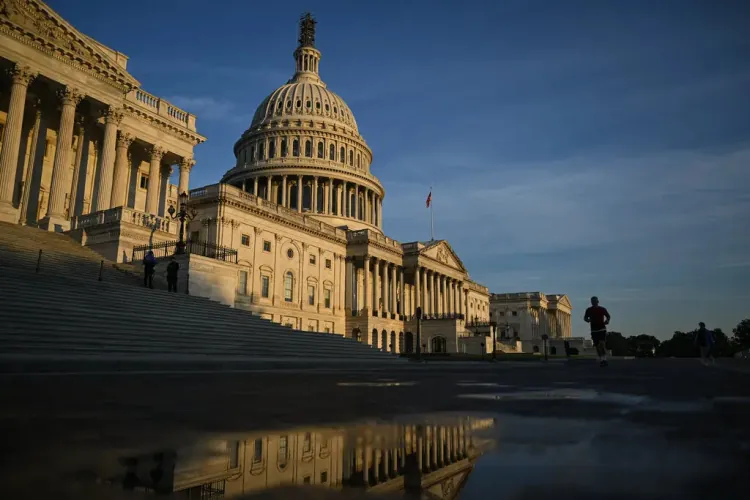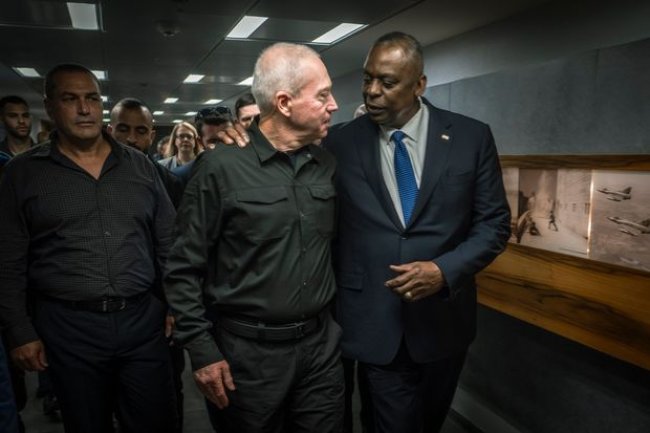Senate's Decisive Move Averts Government Shutdown An In-Depth Analysis
how the Senate's last-minute deal prevented a government shutdown, ensuring continued operations

-
Introduction
- Overview of the Senate's crucial agreement to vote on the government funding package.
- The significance of averting a partial government shutdown.
-
The Eleventh-Hour Agreement
- Details of the late Friday night agreement in the Senate.
- The role of bipartisan cooperation in preventing funding lapses.
-
House Actions and Republican Demands
- Recap of the House voting process and the impact of Republican amendments.
- Marjorie Taylor Greene's motion against the Speaker, highlighting internal party tensions.
-
The $1.2 Trillion Funding Package
- Overview of the critical operations covered by the funding package.
- The importance of the package for government departments and agencies.
-
Congressional Efforts to Prevent Shutdowns
- The history of stopgap bills and the final passage of essential legislation.
- The challenges of funding the government amid partisan disagreements and leadership changes.
-
Johnson's Leadership and Legislative Wins
- Examination of Johnson's role in securing the funding package.
- The conservative victories within the legislation and their implications.
-
Criticism from Both Sides of the Aisle
- The differing viewpoints of progressives and far-right members on the funding package.
- The potential impact of this division on future legislative efforts.
-
Implications for Future Governance
- The significance of averting the shutdown for the continuity of government operations.
- The potential for future leadership challenges within the House.
-
FAQs
- What is the significance of the government funding package?
- How does the Senate's agreement prevent a government shutdown?
- What are the implications of internal party tensions on future legislation?
-
Conclusion
- Reflection on the Senate's crucial role in ensuring government stability.
- Encouragement to explore further resources for comprehensive insights.
Introduction
In a display of legislative agility, the United States Senate orchestrated a pivotal agreement late Friday night, embarking on a vote that steered the nation away from the brink of a partial government shutdown. This decisive action underscored the critical importance of governmental continuity and the Senate's role in safeguarding it.
The Eleventh-Hour Agreement
As the clock ticked closer to the midnight deadline, the Senate's last-minute concord served as a testament to the power of bipartisan collaboration. This agreement facilitated a pathway to vote on a substantial government funding package, forestalling any interruption in government functions or funding.
House Actions and Republican Demands
Earlier in the day, the House of Representatives cast its vote, setting the stage for the Senate's proceedings. However, the Senate's session was prolonged due to negotiations, punctuated by Republican demands for amendment votes—demands that placed certain Senate Democrats in precarious positions. Amidst this political maneuvering, Rep. Marjorie Taylor Greene's bold move to challenge the Speaker's leadership further highlighted the day's tumultuous nature.
The $1.2 Trillion Funding Package
At the heart of this legislative marathon was a $1.2 trillion government funding package, a lifeline for a slew of critical operations across various departments. From Defense to Education, this package promised continuity and stability, serving as the backbone of the nation's operational integrity.
Congressional Efforts to Prevent Shutdowns
The journey to this moment was marked by a series of stopgap measures and last-minute rescues, reflecting Congress's determination to maintain governmental operations despite prevailing challenges. The passage of a package of six bills earlier in March signified a crucial step towards completing the annual federal funding process, a task complicated by partisan policy disagreements and a historic leadership overhaul in the House.
Johnson's Leadership and Legislative Wins
Speaker Johnson's advocacy for the funding package illustrated a commitment to bolstering national defense and supporting military personnel, marking significant conservative achievements within the broader legislative context.
Criticism from Both Sides of the Aisle
However, the agreement was not without its detractors. From progressives to far-right members, lawmakers expressed dissatisfaction for varied reasons, indicating a deep-seated division that could influence future legislative endeavors.
Implications for Future Governance
The Senate's successful navigation of this potential crisis not only ensures the uninterrupted operation of government services but also sets a precedent for overcoming future governance challenges. It underscores the necessity for continued leadership and bipartisan cooperation in the face of internal and external pressures.
FAQs
What is the significance of the government funding package? The package ensures the continued operation of vital government departments and agencies, averting a potential shutdown.
How does the Senate's agreement prevent a government shutdown? By reaching a bipartisan agreement to vote on the funding package, the Senate effectively prevented a lapse in government funding.
What are the implications of internal party tensions on future legislation? Internal tensions could challenge the legislative process, necessitating stronger leadership and bipartisan collaboration to navigate future obstacles.
Conclusion
The Senate's adept maneuvering to avert a government shutdown not only preserved the continuity of governmental operations but also highlighted the imperative of legislative diligence and bipartisanship. As the nation moves forward, it remains imperative to stay informed and engaged with the evolving political landscape.
What's Your Reaction?






















